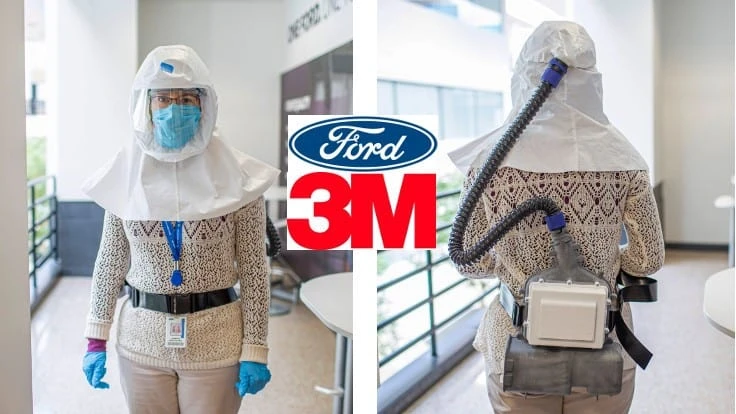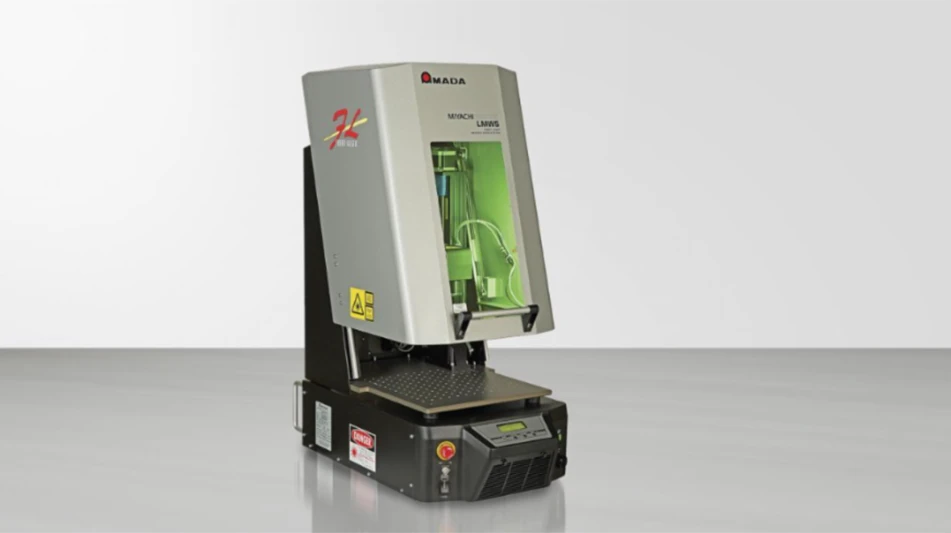
Cleveland, Ohio – Ford plans to increase its range of medical components for hospitals, first responders, and its own use as it responds to the COVID-19 pandemic and prepares to restart production at its North American auto plants.
The largest project begins later this week when workers in Vreeland, Michigan, south of Detroit, will begin making powered air-purifying respirators (PAPRs) as a contract manufacturer to 3M, the device’s primary producer. Ford and 3M announced plans in March for Ford to supply components such as seat-cooling fans from the F-150 pickup to boost PAPR production. That partnership has expanded to allow Ford employees to make as many as 100,000 PAPR units.
“Speed and scale were key aspects of the partnership” with 3M, said Jim Baumbick, vice president, Ford Enterprise Product Line Management. “We obviously are at much higher scale than medical producers. Some of (this equipment) hasn’t been designed for or required in these quantities in the past.”
Unlike the N95 respirator masks used in hospitals, PAPR units use a powered, external cleaning unit worn around the waste that purifies air and pumps it to a hood worn over the user’s head. Baumbick said Ford engineers worked with 3M to identify how to boost production of the units and shift some capacity to Michigan.
Ford and 3M officials are working with the National Institute for Occupational Safety and Health (NIOSH), a division of the U.S. Centers for Disease Control to get the device approved and in the hands of first responders and medical professionals by the end of the month.
Officials with both companies said they are working with federal and state agencies to determine where needs are the greatest to distribute the devices as efficiently as possible.
Mike Kesti, global technical director of 3M’s Personal Safety Division, said the efforts to boost 3M’s production and get a Ford plant online within a few weeks have been incredibly challenging to both organizations, and he praised the accomplishments of engineers and employees.
“I’m remarkably proud of the past 25 days and what we’ve done,” Kesti said.
He added that Ford and 3M engineers worked with health care officials to determine how best to speed device production. While some units have been used for medical applications, Kesti said many PAPR units are for industrial use, to protect workers from hazardous chemicals or pollutants, not viruses.
That meant using fine filters to block tiny viral particles, not the larger dust particles normally filtered. Moving from a high-dust, large particles environment to a low-dust, small particles challenge required changes to filters and other components.
In addition to the respirators, Ford is working with medical producers on several other fronts:
- Aiding Thermo Fisher Scientific efforts to expand COVID-19 test collection kits for patient testing – Thermo Fisher officials say Ford’s efforts are helping triple test kit production by next week. In addition to consulting work, Ford engineers helped adapt manufacturing equipment designed for glass vials to process the plastic vials needed for the test kits.
- Face mask production – Ford’s Van Dyke Transmission Plant has begun producing face masks for medical officials and Ford employees. While initial orders will go to medical professionals, Baumbick said Ford is also building up supplies for internal use. All U.S. auto plants are closed now to slow the spread of the coronavirus that causes COVID-19, but when production resumes, workers will likely have to wear masks or other personal protective equipment (PPE). Baumbick said Ford has thousands of U.S. employees who will likely need masks, making production of those important for internal and external use.
- Protective gown production – While health care workers require facemasks, face shields, and gloves, they also need gowns to keep viral particles off of clothing. Working with airbag supplier Joyson Safety Systems, Ford engineers developed patterns for reusable gowns that can retain protective properties through at least 50 washing cycles (the standard lifecycle for such products). The airbag material is nylon with a silicon coating that engineers were surprised to learn makes good medical gowns.
Also, Ford plans to go into production next week on ventilators as the contract manufacturer to General Electric. GE licensed a small, pneumatically powered ventilator design from small, Florida-based supplier Airon and effectively hired Ford to build the models.
GIE Media will host a webinar on April 22, detailing how the Ford/GE/Airon deal came together and how the companies plan to scale production from a handful of units per day to several thousand within a few months.
About the author: Robert Schoenberger is the editor of Today's Motor Vehicles and Today's eMobility and a contributor to Today's Medical Developments and Aerospace Manufacturing and Design. He has written about the automotive industry for more than 20 years at The Plain Dealer in Cleveland, Ohio; The Courier-Journal in Louisville, Kentucky; and The Clarion-Ledger in Jackson, Mississippi.
Latest from Aerospace Manufacturing and Design
- GE Aerospace secures Air Force engine contract
- Thomson Industries' online sizing and selection tool
- #53 - Manufacturing Matters - 2024 Leaders in Manufacturing Roundtable
- Join us for insights on one of the hottest topics in manufacturing!
- You can still register for March’s Manufacturing Lunch + Learn!
- Ohio creates Youngstown Innovation Hub for Aerospace and Defense
- Tormach’s Chip Conveyor Kit for the 1500MX CNC Mill
- How to Reduce First Article Inspection Creation Time by 70% to 90% with DISCUS Software







